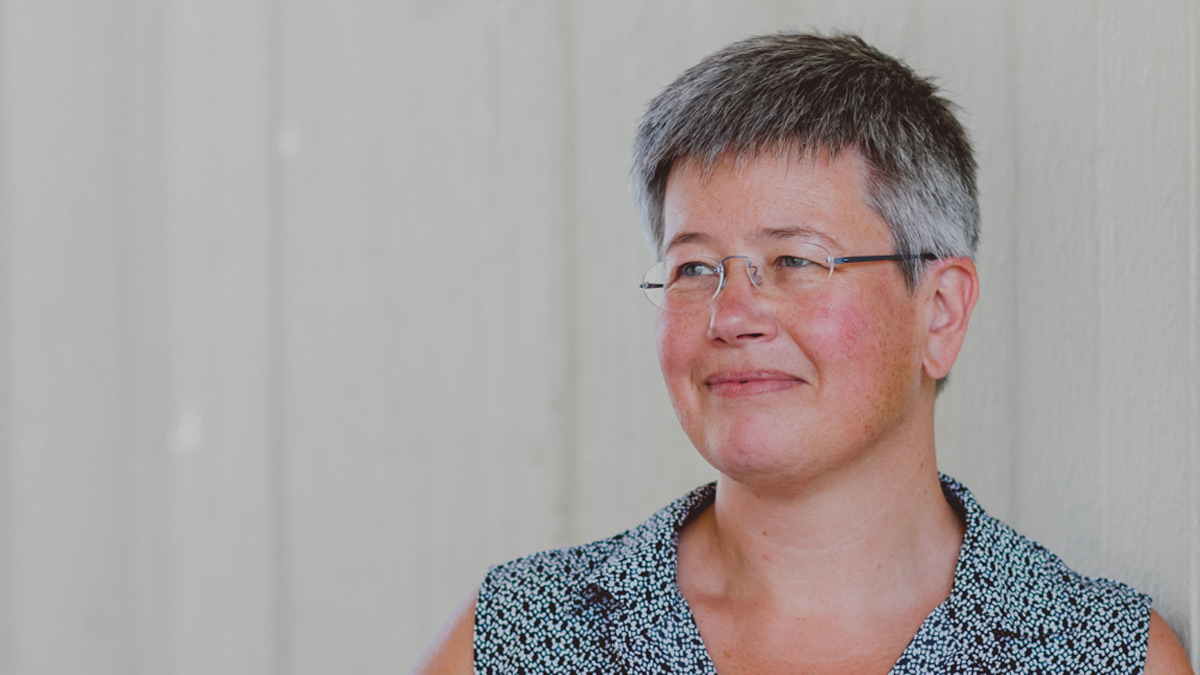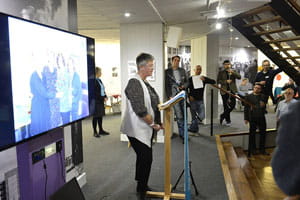Sasha Roseneil is our Executive Dean of the Faculty of Social Sciences and Professor of Sociology. Here she talks about the launch of our new Department of Psychosocial and Psychoanalytic Studies.
Universities are Janus-faced organisations, looking simultaneously backwards and forwards. We have a unique societal role in preserving the past, in ensuring the protection of bodies of knowledge and ways of thinking, and at the same time carrying the collected understandings of our already existing world into the future, from one generation to the next, asking new questions as social change throws up new challenges, and developing thereby new knowledge and ways of thinking. Through this we contribute to the re-creation of the world.
A living entity
A University is, therefore, a living entity, one that moves and changes constantly, whilst also seeking to hold steady enough to capture the past and contain the present. A University values both the old and the new, recognising that the future emerges out of the past, that innovation and creativity do not spring from nowhere, but depend on the accumulation and assimilation of our inheritance from previous generations.
A momentous occasion
The founding of a new department is a momentous occasion in the life of a university. Departments are our ways of organising our work. They delineate every day interactions, they structure how we manage resources, and they mark the boundaries of bodies of knowledge and ways of thinking. They are a way of settling, making solid, putting a framework around the flow of intellectual life and the ongoing pursuit of understanding, so that people with shared interests and approaches, with broadly similar ways of tackling an intellectual, scientific or social problem can work alongside and with each other, without having to constantly explain, justify and defend their assumptions, methods and practices. Ideally, a department provides us with a home at work, a place of membership and belonging – a community of colleagues with whom to identify.
(Of course, that is the ideal, and it does not always feel like that in departments. Departments can operate as mechanisms of exclusion as much as inclusion, with identities defined oppositionally and negatively, as much as positively. But that line of thought is for another occasion.)
So, it is a big thing for a university to establish a new department. It grants recognition to a body of knowledge and a way of thinking. It constitutes them as legitimate, alongside other long established fields of study, and it marks thereby the transformation of intellectual life and what we might call “science” in its broadest sense.
Moving with the times
Essex is a university founded in the white hot heat of the 1960s that remains fundamentally committed to re-inventing itself, to moving with the times, to riding the wave of the contemporary, whilst always remembering its roots. We are a university that is willing to do things differently, and to allow new bodies of knowledge and ways of thinking the time and space to grow and, ultimately, the institutional recognition needed to flourish.
The Centre for Psychoanalytic Studies emerged out of our enormously generative Department of Sociology, and has existed now for more than two decades as a unique locus globally for research and education in psychoanalysis. Psychoanalysis is a body of knowledge and a way of thinking that simultaneously looks back into the past – into an individual’s biographical history, early life experiences, and the intergenerational legacies of which conscious awareness may not exist – whilst also attending, with precision, care, and an open mind to experience in the present moment, in order to release the hold of the past and to open up possibilities for the future.
Recognition and expansion
The establishment of the new Department of Psychosocial and Psychoanalytic Studies offers recognition to the work that has been carried out in the Centre in the past. But it also marks an expansion and reconfiguring of the work of the Centre. The adding to the new department’s name the notion of the psychosocial points to, and embraces, important new developments in the social sciences and beyond.
The idea of the psychosocial
The idea of the psychosocial – a concept that has a long history in social science and medicine – has been taking on new shape and meaning in the past two decades. [1] It is carving out a new transdisciplinary space of thinking and practice that challenges the 19th century configuration of the social and human sciences, and the disciplinary division between psychology and sociology. This distinction, represented and reproduced in almost every university around the world, allocates to psychology the scientific study of the mind, the individual, and, in some formulations, ‘inner life’, affect and emotion, and to sociology the study of ‘society’, ‘external worlds’, macro-structures and processes.
Developing most rapidly in the UK, but with parallel developments across Europe and beyond, and indeed with its roots in pre-second world war Frankfurt, psychosocial studies rejects the separation of the spheres of ‘psychic’ and ‘social’, and the idea that ‘inner’ and ‘outer’ worlds are empirically or theoretically separable. As people we are always already beings with both singular, personal experience and with shared, collective experience – we cannot know one without the other, we cannot know ourselves without others, individual and society are always entangled.
As psychoanalyst Joan Riviere said in 1952:
“There is no such thing as a single human being, pure and simple, unmixed with other human beings. Each personality is a world in himself, a company of many. That self, that life of one’s own, which is in fact so precious though so casually taken for granted, is a composite structure which has been and is being formed and built up since the day of our birth out of countless never-ending influences and exchanges between ourselves and others […] These other persons are in fact therefore parts of ourselves, not indeed the whole of them but such parts or aspects of them as we had our relation with, and as have thus become parts of us. […] We are members one of another (Riviere, 1952:166-167).[2]”
Psychoanalytic understandings
To add psychoanalysis into the psychosocial mix is to suggest that the process of seeking to understand and know ourselves and our world is always one about which we are conflicted. It is to recognise that whilst there are things that we expressly want to know, that we long to know, there are things that we might be protecting ourselves from knowing. It is to acknowledge that there may be defences against uncomfortable realities, within each of us as individuals, in our organisations and institutions, in our society and polity. It suggests that there are forces that resist our best, avowed intentions, pulling us in the opposite direction – back to the past, rather than onward into the future, towards death and destruction, as much as towards life and creativity.
To some readers this might sound rather too mystical and unscientific. It might not seem like the proper business of a Faculty of Social Sciences that is known across the world for its rigorous quantitative research, its commitment to the rational, the empirical and the measurable.
The uniqueness of the social sciences at Essex
But I believe that that what makes the social sciences at Essex both unique and great is our breadth and range. We work across the whole gamut of approaches and topics, with an enormous variety of methods and materials – from the study of macro processes of social, economic and political change to the study of micro moments and inner worlds. We study numbers – population statistics, big data, longitudinal surveys – and we study texts – historical documents, narratives, biographies, discourse and language. We build models, and we deconstruct them. We embrace quantitative and qualitative, macro and micro, the historical and the contemporary, analysis and criticality, the theoretical and the empirical, the political and the personal, the psychic and the social.
And our innovation and our rejuvenation reside in our desire to explore and inhabit the spaces in between all of these. It is in the spaces in between, the new places that, with hard work and struggle, we carve out for thinking differently that our collective life, our culture, sociality and self-understandings are transformed.
Our new Department of Psychosocial and Psychoanalytic Studies is part of that process of renewal and transformation, at Essex and in the wider world. I wish its members – staff and students – now and of the future – intellectual excitement, good humour and a spirit of collective enterprise in the work that you will do together and with the rest of the University, in Colchester, Southend, and beyond.
Take a look at all the photos from the launch event on flickr.
[1] See Roseneil, S. (2014) ‘The Psychosocial Challenges of Establishing the Field of Psychosocial Studies’, Journal of Psycho-Social Studies, Vol. 8, Issue 1 http://www1.uwe.ac.uk/hls/research/jpss/volume812014.aspx
[2] Riviere, J. (1952) ‘The unconscious phantasy of an inner world reflected in examples from literature’. Int. J. Psycho-Anal., 33:160-72.



